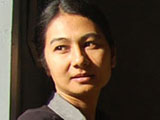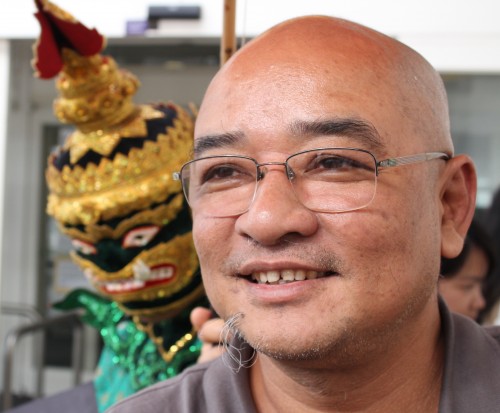Zaganar: A Comedian Who Works for Freedom of Expression
by Khet Mar / August 9, 2012 / No comments
Despite multiple prison sentences Zaganar continues his work in Burma
Everyone in Burma knows Zaganar. Not only does his audience know him as a comedian, but intellectuals, activists and politicians know him as someone who has fought for freedom of expression since the 1980s.

- In Burma if you want to hear about issues the newspapers can’t talk about, you should go to a tea shop. Tea houses were where I used to meet with other activists, writers and artists, as well as where I built friendships. Within tea houses we talked about Burmese writers, literary trends we noticed, and, of course, politics. This online space attempts to emulate the conversations I enjoyed in Rangoon’s tea houses.

- Khet Mar is a journalist, novelist, short story writer, poet, and essayist from Burma. She is the author of one novel, Wild Snowy Night, as well as several collections of short stories, essays and poems. Her work has been translated into English and Japanese, been broadcast on radio, and made into a film. She is a former writer-in-residence at City of Asylum/Pittsburgh.
Zaganar is credited with reviving the Burmese traditional performance Anyeint, a form of entertainment that combines dance, instrumental music, songs, and comedy routines in a theatrical performance. He modified the Anyeint by replacing traditional jokes with jokes about the nonsensical results of government mismanagement.
After Zaganar participated in the 1988 uprising as a comedian, he was detained for the first time, for one year. Later he was sentenced to four years in prison because of a speech he gave during the 1990 election period. He was detained again in 2007 after the Saffron Revolution for helping the monks who led the protests. In 2008 he was sentenced to 59 years in prison for helping the victims of cyclone Nargis, which killed 130,000 and left another 3 million homeless. The charges against him also stemmed from his criticism of the government’s response to the victims and for reporting news about the cyclone to foreign media.
In 1991, while in jail, Zaganar received the Lillian Hellman and Dashiell Hammett Grant from the Fund for Free Expression. In 2008 he received the Freedom to Create Prize. After the last time he was imprisoned, Zarganar was also the subject of This Prison Where I Live, a documentary film by Rex Bloomstein and the German comedian Michael Mittermeier.
Soon after his release in early 1990 I met Zaganar for the first time at a tea house downtown. “I read one of your short stories while I was in jail, about one of your teachers,” he said. “It was in a magazine that I brought secretly. Since then, I have wanted to meet you.”
We became friends when he told me that. We remain friends to this day.
Whenever I’ve needed help from Zaganar, he has never refused. Even today, whenever I want to know something about Burma, I dial his number.
When my friends who had been political prisoners were released, I usually called them several days after, when they had fewer visitors. But in October, 2011, when he was released from his last sentence, I called Zaganar as soon as I heard he had arrived at his home. He answered willingly. His voice was low because of many hours of talking to many people.
“I am being interviewed by a French journalist” he said, though he was still talking with me on the phone. When I tried to stop talking because he was being interviewed, he told me, “Why don’t you come back home? We have many things to do together.”
Zaganar hasn’t taken a rest since he was released. He continues to work for freedom of expression, which he has believed in for his whole life. For example, only a few days after his release he organized the Art of Freedom Documentary Festival, which was the first in Burma. Zaganar also traveled and screened the winning movies from this festival in several countries throughout the East and West. In February 2012, he was invited to visit the United States by the National Endowment for Democracy (NED). While there he met with Hillary Clinton, the United States Secretary of State, to discuss Burma’s future.
Then in June, 2012 he was invited by Amnesty International to participate in The Hay Festival. There he met Michael Mittermeier, who made The Prison Where I Live, and they performed together in Germany.
When I called him for his permission to write this profile, Zaganar told me he is coming to the United States in August. I am excited to see him, even though I have been able to talk to him on the phone many times since he was released. Still, I know he will tell me more about what he is going to do for his country than about how he has suffered.





